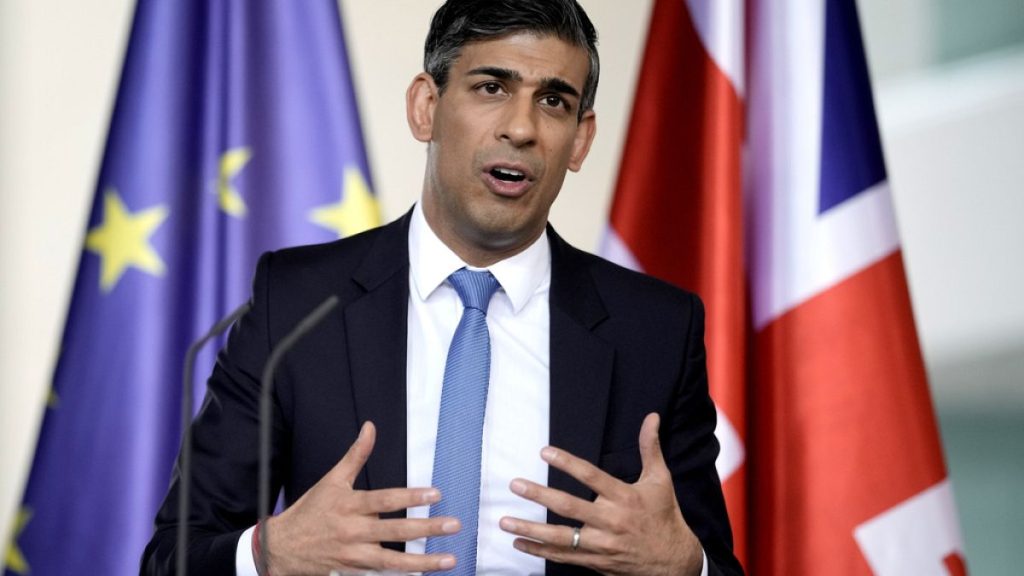The British and Irish governments are facing tensions over the issue of asylum seekers arriving in Ireland and seeking to be returned to the UK. The British government recently passed a controversial law that would see asylum seekers arriving in the UK via small boats deported to Rwanda for processing. In response, Ireland is considering emergency legislation to return asylum seekers crossing into Ireland from Northern Ireland back to the UK. Irish officials have raised concerns about the increasing number of asylum seekers arriving from Northern Ireland, which is part of the UK.
The Irish Justice Minister has stated that the number of asylum seekers crossing from Northern Ireland into Ireland is now higher than 80%, although exact figures were not provided. Irish Prime Minister Simon Harris has emphasized that Ireland will not serve as a loophole for the migration challenges faced by other countries. The UK Chancellor of the Exchequer Rishi Sunak has rejected the proposal to accept returns from the EU via Ireland, citing the EU’s refusal to accept returns back to France from where many illegal migrants are coming.
The proposal for Ireland to return asylum seekers to the UK comes in response to a ruling by the Irish High Court that found Ireland’s designation of the UK as a safe third country for asylum seekers is contrary to EU law. The issue of immigration has become increasingly contentious in Ireland, with the influx of refugees from Ukraine and other countries exacerbating a housing crisis. Far-right groups have stirred up anti-immigrant sentiment, particularly targeting Muslims and Africans, leading to incidents of violence such as a stabbing by a man of Algerian descent that caused a riot in Dublin.
Officials from both the UK and Ireland have sought to downplay any rift over the migrant issue, emphasizing their commitment to protecting the common travel area from abuse. However, the disagreement over the return of asylum seekers highlights the broader challenges facing both countries in managing immigration flows. The controversy over the proposed legislation in Ireland reflects deeper tensions around immigration policy and the treatment of asylum seekers, with concerns about the impact on already strained housing and social services. The countries will need to work together to find a resolution that addresses the needs and rights of asylum seekers while also upholding their respective legal obligations and commitments. A collaborative and cooperative approach will be essential in addressing these complex and sensitive issues.















